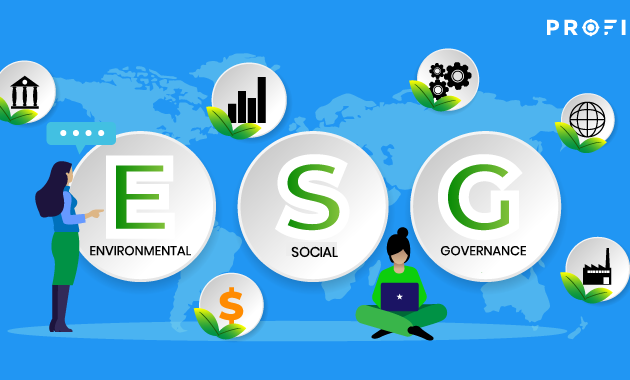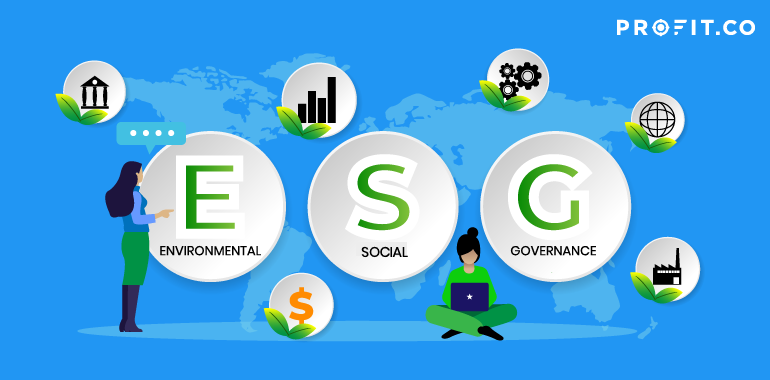
Business Intelligence Tools That Track ESG Metrics: A Deep Dive
The landscape of corporate responsibility is evolving. Companies are no longer judged solely on their financial performance. Environmental, Social, and Governance (ESG) factors are increasingly crucial. Investors, consumers, and regulators are demanding greater transparency and accountability. This shift has created a surge in demand for sophisticated tools. These tools help organizations track and analyze ESG metrics. This article explores business intelligence tools that track ESG metrics. We will delve into their functionalities, benefits, and the leading providers in the market.
The focus on ESG is more than a trend. It’s a fundamental change in how businesses operate. It reflects a growing awareness of the impact companies have on the planet and society. This awareness drives the need for robust data collection and analysis. This is where business intelligence (BI) tools come into play. These tools provide the capabilities needed to monitor, measure, and report on ESG performance. They transform raw data into actionable insights. This allows organizations to make informed decisions. These decisions are vital for improving their ESG scores and overall sustainability.
The Growing Importance of ESG Metrics
ESG metrics encompass a wide range of factors. Environmental considerations include carbon emissions, resource consumption, and waste management. Social factors cover labor practices, human rights, and community engagement. Governance focuses on board diversity, executive compensation, and ethical conduct. These metrics are not just about compliance. They reflect a company’s commitment to long-term value creation. They also signal its ability to manage risks and capitalize on opportunities.
The benefits of tracking ESG metrics are numerous. They include:
- Improved Risk Management: Identifying and mitigating ESG-related risks.
- Enhanced Brand Reputation: Demonstrating a commitment to sustainability.
- Increased Investor Confidence: Attracting socially responsible investors.
- Regulatory Compliance: Meeting evolving ESG reporting requirements.
- Operational Efficiency: Optimizing resource use and reducing costs.
As the importance of ESG grows, so does the need for effective tracking. This is where business intelligence tools become indispensable.
How Business Intelligence Tools Track ESG Metrics
BI tools are designed to collect, analyze, and visualize data. They offer a range of features. These features are essential for tracking ESG metrics effectively. These include data integration, data visualization, and reporting capabilities.
Data Integration
A key function of BI tools is data integration. They can pull data from various sources. These sources include internal databases, spreadsheets, and external data providers. This allows organizations to consolidate all relevant ESG data. This provides a comprehensive view of their performance.
Data Visualization
Data visualization is another crucial feature. BI tools transform raw data into charts, graphs, and dashboards. These visual representations make it easy to understand complex ESG data. They highlight trends, identify anomalies, and track progress over time. This facilitates data-driven decision-making.
Reporting and Analytics
BI tools provide robust reporting and analytics capabilities. They allow organizations to generate customized reports. These reports meet specific ESG reporting requirements. They also provide advanced analytics. These analytics uncover deeper insights into ESG performance. This enables organizations to identify areas for improvement.
Key Features of Business Intelligence Tools for ESG
When selecting a BI tool for tracking ESG metrics, consider these key features:
- Data Connectivity: Ability to connect to various data sources.
- Data Transformation: Tools for cleaning and transforming data.
- Customizable Dashboards: Creating dashboards to monitor key metrics.
- Reporting Capabilities: Generating detailed ESG reports.
- Advanced Analytics: Analyzing trends and identifying insights.
- Automation: Automating data collection and reporting processes.
- Collaboration: Sharing insights with stakeholders.
These features ensure that the BI tool meets the specific needs of the organization. They also provide a comprehensive view of ESG performance.
Leading Business Intelligence Tools for ESG Tracking
Several BI tools are well-suited for tracking ESG metrics. These tools offer a range of features and capabilities. They cater to different needs and budgets. Here are some of the leading providers:
Tableau
Tableau is a popular BI tool known for its user-friendly interface and powerful data visualization capabilities. It allows users to easily create interactive dashboards. These dashboards track ESG metrics. Tableau integrates with a wide range of data sources. This makes it a versatile choice for ESG reporting.
Microsoft Power BI
Microsoft Power BI is a cost-effective BI solution. It offers a comprehensive set of features. These features include data integration, data visualization, and reporting. Power BI integrates seamlessly with other Microsoft products. This makes it a good choice for organizations already using the Microsoft ecosystem. The tool is also beneficial for tracking ESG metrics.
Qlik Sense
Qlik Sense is a BI tool that emphasizes data discovery and self-service analytics. It uses an associative data model. This model allows users to explore data from multiple angles. Qlik Sense offers strong data governance features. This makes it suitable for organizations with complex data requirements. It is also a helpful tool for ESG tracking.
SAP Analytics Cloud
SAP Analytics Cloud is an enterprise-grade BI solution. It is designed for large organizations. It offers advanced analytics and planning capabilities. SAP Analytics Cloud integrates with SAP systems. This makes it a good choice for organizations using SAP ERP systems. It is also a great tool for measuring ESG metrics.
Other Notable Tools
Other BI tools are emerging in the ESG space. These tools are specifically designed for ESG reporting. They offer specialized features. These features cater to the unique needs of ESG tracking. Examples include tools from Workiva and Sphera.
Selecting the right BI tool depends on the organization’s specific needs. These needs include data sources, budget, and reporting requirements. Carefully evaluating the features of each tool is crucial. This ensures the chosen tool meets the organization’s ESG tracking goals.
Implementing Business Intelligence Tools for ESG
Implementing a BI tool for ESG tracking involves several steps:
- Define ESG Metrics: Identify the key ESG metrics.
- Choose a BI Tool: Select the right tool based on needs.
- Connect Data Sources: Integrate data from various sources.
- Clean and Transform Data: Prepare data for analysis.
- Create Dashboards and Reports: Visualize and report on data.
- Train Users: Ensure users understand the tool.
- Monitor and Improve: Continuously refine the process.
A well-planned implementation ensures the BI tool effectively tracks ESG metrics. It also generates actionable insights for improvement. The business intelligence tools are essential for ESG reporting.
The Future of Business Intelligence and ESG
The integration of BI tools and ESG is still evolving. We can expect to see several trends in the future. These trends will shape the landscape of corporate sustainability.
- Increased Automation: Automating data collection and reporting.
- Advanced Analytics: Using predictive analytics.
- Integration with AI: Leveraging AI for data analysis.
- Focus on Data Quality: Ensuring accurate and reliable data.
- Enhanced Collaboration: Sharing insights with stakeholders.
As ESG becomes even more critical, business intelligence tools will play a crucial role. They provide the insights needed to drive sustainable business practices. These tools will help organizations meet the growing demands of stakeholders. They will also navigate the complexities of ESG reporting.
Conclusion: Embracing Business Intelligence for a Sustainable Future
Business intelligence tools that track ESG metrics are no longer a luxury. They are a necessity. They provide the data-driven insights needed for effective ESG management. Organizations must embrace these tools. This embrace will allow them to improve their sustainability performance. It also helps them to build a more resilient and responsible business. The tools are vital for tracking ESG metrics.
By leveraging the power of BI, companies can:
- Make informed decisions.
- Improve their ESG scores.
- Create long-term value.
- Contribute to a more sustainable future.
The journey towards a more sustainable future requires commitment. It also requires the right tools and strategies. Business intelligence tools are essential in this journey. They empower organizations to track, analyze, and improve their ESG performance. This ultimately leads to a better world for all. [See also: Related Article Titles]

